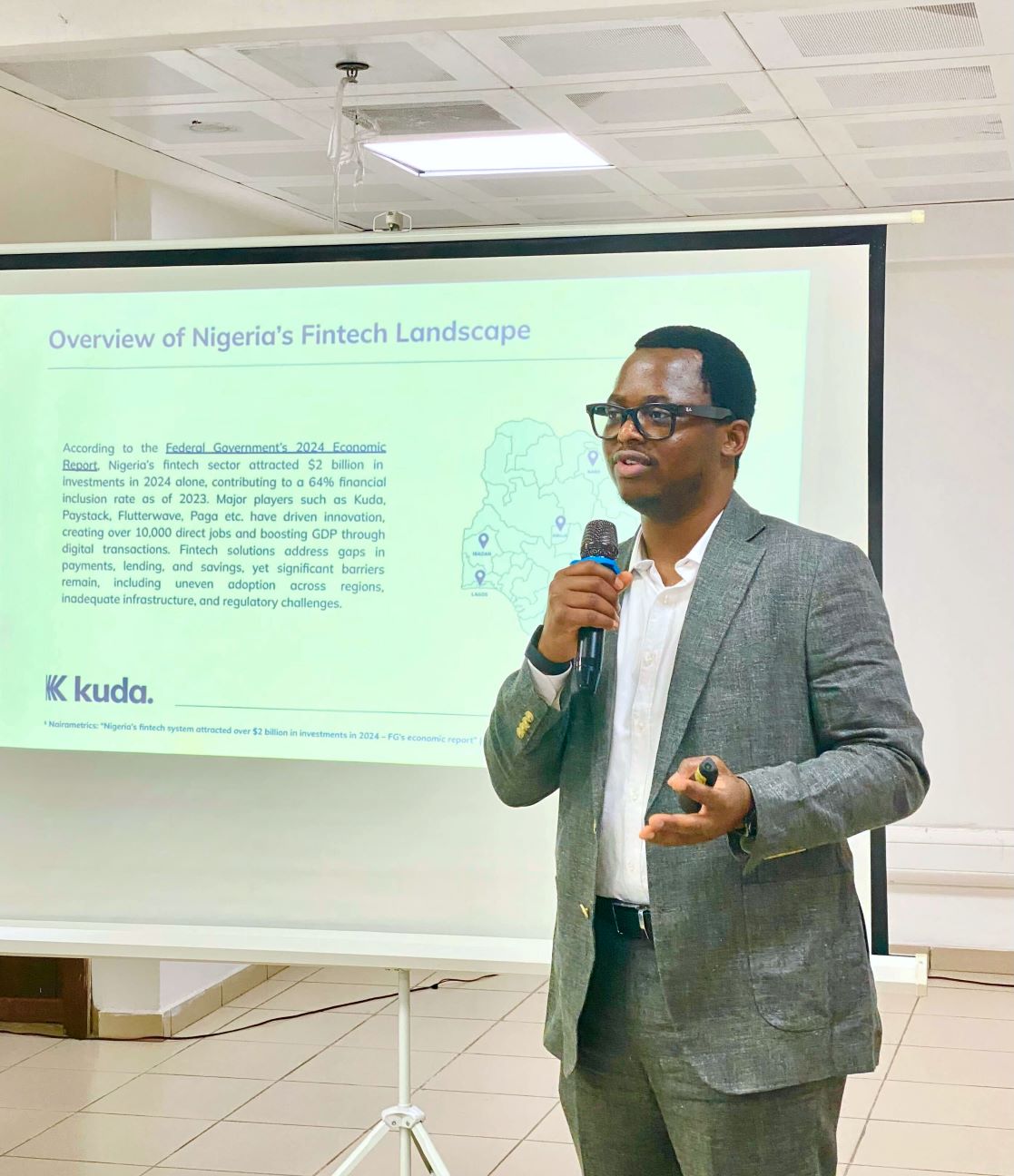Kuda MFB Boss, Musty Mustapha Calls For Unified Regulatory Framework, Infrastructure Investment To Drive Fintech Growth

The Managing Director of Kuda Microfinance Bank, Musty Mustapha, has called for a united regulatory framework and infrastructure investment to unlock Nigeria’s fintech potential.
Speaking at the Nigeria Deposit Insurance Corporation (NDIC), Mustapha highlighted the sector’s rapid growth, with $2 billion in investments in 2024, but warned that regulatory uncertainty, cybersecurity threats, financial exclusion, and infrastructure deficits continue to hinder sustainable progress.
Nigeria’s fintech ecosystem has been instrumental in driving financial inclusion, pushing the country’s inclusion rate to 64% in 2023, according to government data.
However, Mustapha pointed out that fintech firms still face an uneven regulatory playing field, operating under multiple oversight bodies, including the CBN, SEC, and NDIC, which creates compliance bottlenecks.
He argued that fragmented regulations not only slow down innovation but also discourage further investment in the sector.
To address this, he called for harmonised policies that balance innovation with consumer protection, ensuring fintechs have equal access to critical financial infrastructure.
Security risks also pose a significant challenge, with Nigeria ranking fifth globally in cybercrime.
Mustapha noted that phishing attacks, insider fraud, and financial system breaches undermine consumer trust in digital payments, limiting the sector’s ability to scale.
He urged industry players to strengthen cybersecurity frameworks, adopt multi-factor authentication, and collaborate with banks, regulators, and global cybersecurity firms to tackle evolving threats.
Mustapha noted that despite fintech’s expansion, millions of Nigerians remain financially excluded, particularly in rural areas where low smartphone penetration and poor digital literacy make digital banking adoption difficult.
He stressed the need for more inclusive financial products, leveraging USSD and offline payment solutions to serve cash-dependent populations. He also called for nationwide financial literacy campaigns to drive trust in digital financial services.
A key issue affecting the fintech industry is talent shortage, especially in areas such as blockchain, AI, and cybersecurity.
Nigeria has one of the fastest-growing tech workforces in Africa, but the unending migration of skilled professionals abroad has slowed local fintech innovation.
Mustapha proposed partnerships between fintech companies and universities, as well as exchange programmes with international firms, to accelerate skills development and retain top talent.
He also underscored the urgent need for infrastructure investment, as poor broadband access, erratic power supply, and inadequate payment networks continue to limit fintech operations, particularly in underserved regions.
He called for public-private partnerships (PPPs) to improve digital infrastructure, ensuring fintech solutions can scale effectively and reach more Nigerians.
Mustapha’s remarks come at a time when Nigeria’s fintech sector is positioning itself as a leader in Africa’s digital economy.
However, as the industry continues to evolve, he stressed that sustained collaboration between regulators, fintech firms, and investors will be crucial in ensuring long-term stability, innovation, and financial inclusion.
By addressing these challenges, Nigeria can build a more resilient and globally competitive fintech ecosystem that benefits businesses and consumers alike.













